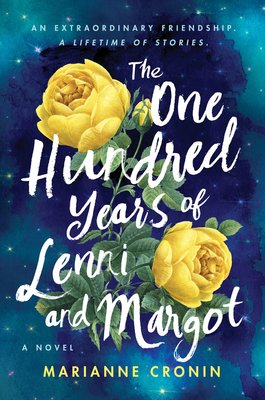Book Review: The One Hundred Years of Lenni and Margot by Marianne Cronin
I’ll admit, the title The One Hundred Years of Lenni and Margot intrigued me from the get-go. It promised a blend of humor and poignancy—and I was eager to dive into a narrative that intertwines the lives of two characters representing generations of experience. Marianne Cronin’s debut novel did not disappoint; it captivated me with its heartfelt exploration of life, love, and the inevitable approach of the "night" that we all face.
At the heart of the story is 17-year-old Lenni, a vibrant spirit contending with her terminal illness (or as she cheekily prefers, “life-limiting”), residing in the May Ward of Glasgow’s Princess Royal Hospital. Her perspective is refreshingly candid and filled with a dry humor that only a teenager facing such profound questions of life can muster. One of my favorite moments captures her playful banter with Father Arthur, the hospital chaplain. “So tell me, Lenni, what brings you to the chapel today?” he questions, to which Lenni cheekily replies, “I’m thinking about buying a second-hand BMW.”
This exchange exemplifies how Lenni’s vivacity breathes life into such weighty themes. In her world, you sense that despite looming darkness, she remains defiantly curious. Her friendship with 83-year-old Margot, another patient in the hospital, stems from an instinctive connection that evolves into a beautiful partnership. Together, they embark on a project to create 100 pieces of art, each representing a year of their combined century of stories. The pacing of the novel allows for a seamless transition between Lenni’s youthful reminiscences and Margot’s poignant reflections on a life well-lived—a duality that adds depth to the narrative.
Cronin’s writing style is vibrant and engaging. She layers wit over sorrow, as seen in Lenni’s reflections and her insightful conversations with hospital staff. The use of Lenni’s diary entries and the distinct shifts in narrative perspective—especially when discussing “The Temp,” who dreams of creating an Art Room for patients—add an unexpected richness to the storytelling.
One quote that deeply resonated with me is when Margot, reflecting on her life, simply states, “I can’t.” This moment underscores the emotional weight of memory and loss, revealing a profound connection between the two women. It encapsulates the heart of the novel: the struggles to confront our pasts while stepping into the future, against the backdrop of inevitable mortality.
If you’re someone who enjoys stories rich with emotion, humor, and reflections on friendship across generations, this book is undoubtedly for you. The One Hundred Years of Lenni and Margot is a celebration of life’s fleeting beauty, reminding us not to shy away from our narratives or the connections that bind us, even as we tread into the unknown.
Reading this novel left a lasting impression on me; it encouraged me to consider the stories we carry and how they shape our identities. I walked away not just entertained, but enriched, feeling a profound connection to both Lenni and Margot—their lives reminding us that every moment is a tapestry of experiences worth painting. If you find joy in storytelling that illuminates the fragility—and richness—of our shared human experience, this book will undoubtedly resonate with you as it did with me.
Discover more about The One Hundred Years of Lenni and Margot on GoodReads >>







